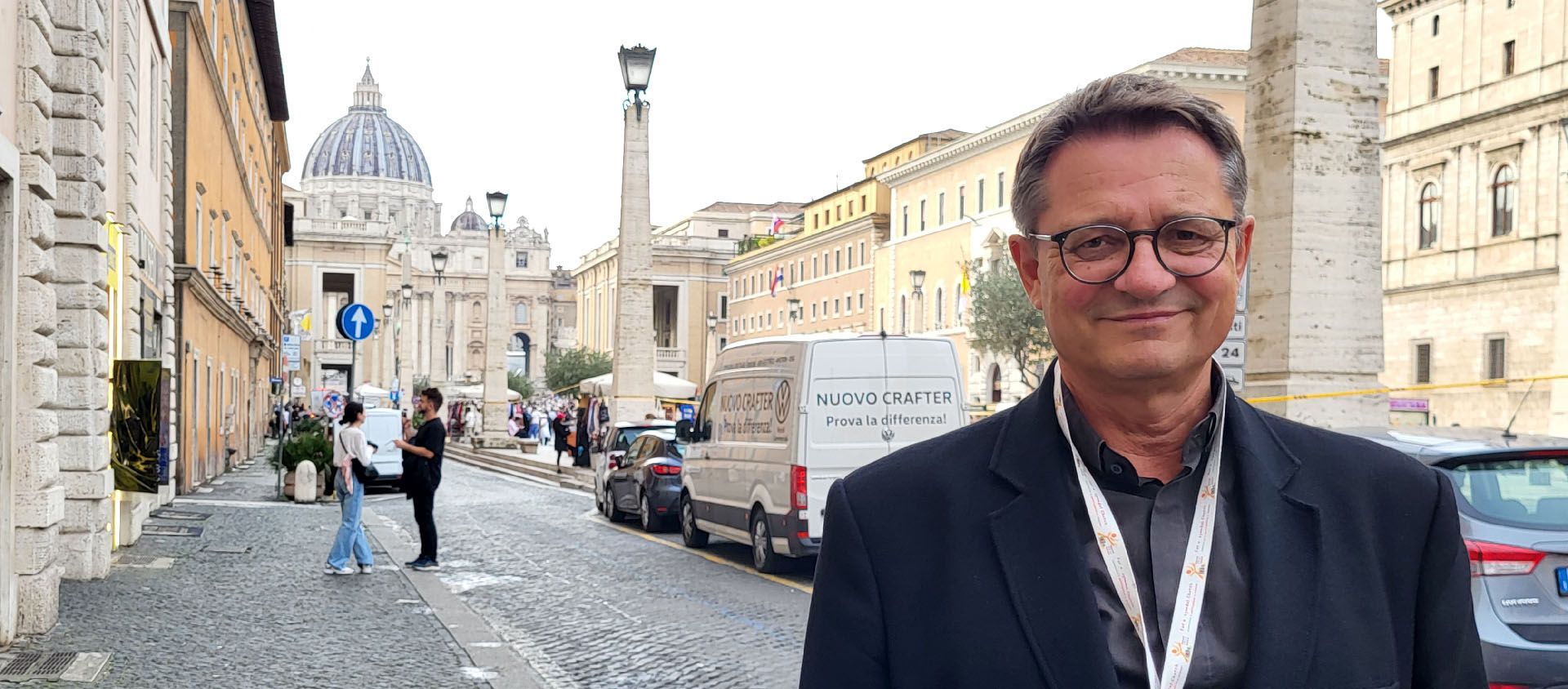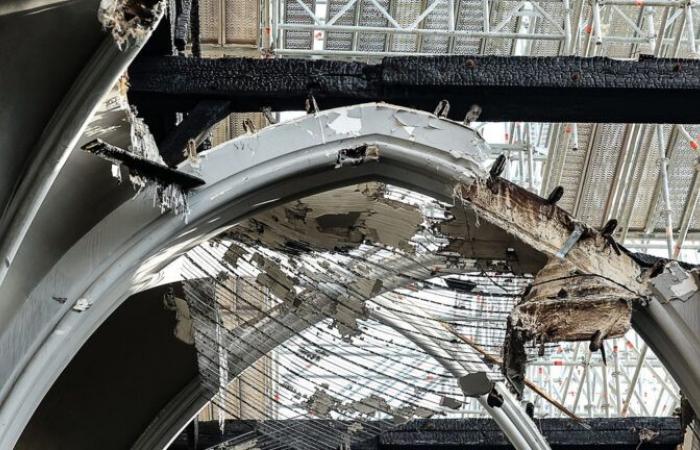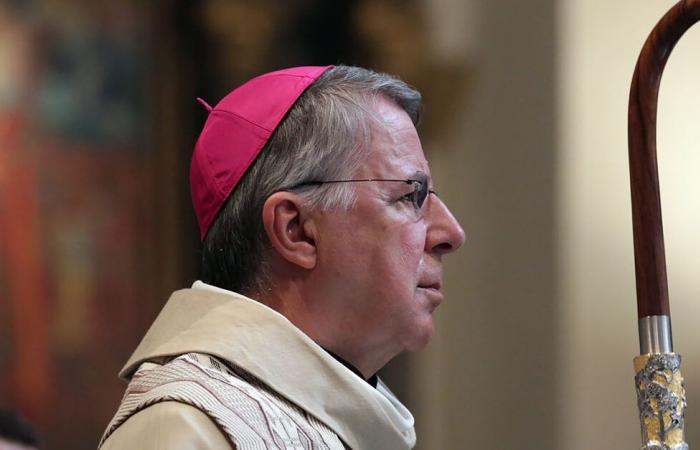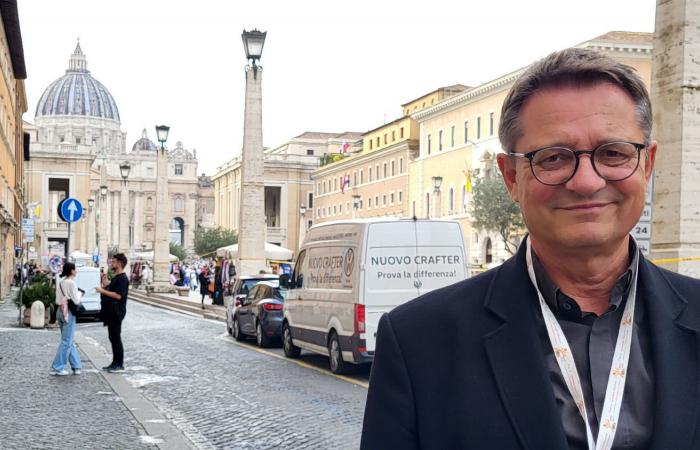Implementation of the system to combat abuse, introduction of the Synod, results of investigations… In 2024, the Church in Switzerland once again gave the impression of being “under construction”. At the same time, she used this troubled period to lay the foundations for her future.
To fully understand 2024, we must look at 2023. The end of this year was a pivotal period (certainly not the easiest) for the Church in Switzerland. The scourge of sexual abuse in an ecclesial context appeared in all its extent.
On September 12, 2023, the publication of the pilot project by the University of Zurich revealed sexual abuse committed by clerics in the last 70 years. Two days before, the Alemannic newspaper Sunday view had revealed the existence of a preliminary canonical investigation ordered by Rome against several members of the Swiss Bishops’ Conference (CES).
The fact that Mgr Joseph Bonnemain was charged by Rome with carrying out the preliminary investigation was particularly criticized. Faced with criticism of the lack of independence, the Bishop of Chur finally enlisted the help of two collaborators not linked to the Church in this task.
The wave of indignation which followed these revelations largely fueled exits from the Church. Image damage further increased by the cases affecting the Abbey of St-Maurice brought back to the forefront by the show Focus of the RTS, in November 2023.
Canons “on the grill”
Logically, this shock wave carried over into the following year. In 2024, affected institutions have been forced to draw conclusions and take the lead. Saint-Maurice notably instructed, at the end of February, the attorney general of the canton of Neuchâtel, Pierre Aubert, to set up an independent working group on the accusations of sexual abuse concerning the Valais institution. An approach which has not yet, to date, delivered its conclusions.
The cases of two implicated canons will be particularly talked about during the year. That of Gilles Roduit, accused of touching a 12-year-old girl in the early 2000s, will experience many twists and turns. Initially removed from his position as dean of St-Maurice following the broadcast of RTS, he was reinstated in his duties in May 2024, after undertaking a hunger strike. A decision based mainly on the absence of criminal measures against him, with no possible appeal.
This reinstatement provokes the anger of part of public opinion and victims’ associations. The canon finally resigned in September, explaining that he had been “very regularly confronted with judgments without appeal or dialogue which condemned him and closed the doors to him”.
Shadows of doubt
The case concerning Mgr Jean Scarcella has also been covered regularly in the press. The Abbot of St-Maurice was accused of having made an inappropriate gesture towards a young man, more than 30 years ago. Actions which, again, could not be demonstrated. The Valais public prosecutor announced at the beginning of October 2024 the dismissal of the procedure. Canonically, the report from the Dicastery for Bishops concluded two weeks later that “there is no evidence of abuse or harassment in the literal sense in the case concerned.”
Procedures which did not result in a formal “whitewashing” of the accused, leaving doubts lingering. They raised the thorny question of the treatment of the clerics involved, in the absence of definitive answers often due to the age of the cases now covered by the statute of limitations.
No resignation of bishop
The Roman preliminary investigation report, made public on October 18, rather lightly scratched the prelates concerned, considering that they had made “errors”, but not “mistakes”. Mgr Jean-Marie Lovey, Bishop of Sion, and Mgr Charles Morerod, Bishop of Lausanne, Geneva and Fribourg, were notably criticized for wanting to protect colleagues by concealing cases of abuse. Accusations not confirmed by Rome, which ultimately addressed these bishops with simple “reprimands”.
“The Church in Switzerland announced a series of measures to strengthen the fight against sexual abuse”
Nothing that could justify, at least in the eyes of the prelates incriminated, resignations or public apologies. Issues that certain personalities, also within the Church, had openly suggested during the year, in the face of the multiplication of cases.
Shed the light
As soon as the University of Zurich report was published, the Church in Switzerland announced a series of measures to strengthen the fight against sexual abuse in Switzerland. A commitment which took shape in 2024. At the same time, several dioceses have put in place their own systems, in particular behavior charters for pastoral agents.
In June 2024, in particular, the diocese of Sion committed to launching a series of measures to better welcome victims of abuse. The diocese also published the results of an external audit revealing a number of problems with case management.
At the national level, the Swiss Bishops’ Conference (CES), the Roman Catholic Central Conference of Switzerland (RKZ) and the Religious Communities of Switzerland (KOVOS) have undertaken actions to take stock of what happened and to fight preventatively against sexual abuse. The three Catholic authorities have notably decided to continue their collaboration with the University of Zurich, entrusting it with the mandate for a new research project for 2024-2026.
The issue of independence
Support for victims was at the center of concerns. One of the objectives being the creation of professional and independent abuse reporting services throughout Switzerland. In 2024, different types of structures were examined. Those responsible ultimately opted for collaboration with recognized advisory bodies (LAVI Centers) and cantonal social structures.

One of the key measures was the creation of an independent interdiocesan ecclesiastical tribunal. A commitment that the Swiss bishops went to Rome to plead. With success, since they announced at the beginning of December that the Apostolic Signature had given its ‘nihil obstat’. A project therefore on track, which will probably be finalized in the coming months and years.
Impulses from the Synod
Sexual abuse has spurred significant changes in the Church, requiring efforts at transparency and professionalization. But the “renovation” of the “house” was also instilled by the Synod on Synodality, the final phase of which ended in October in Rome, and which gave decisive impulses to the universal Church. The assembly called together to find new forms of governance, less centered on the figure of the priest.
“Although few things have been achieved, many stones have nevertheless been laid”
In Switzerland, the experience has given rise to a certain number of initiatives. The ETUC thus created the Synodality Commission in 2024, responsible for making the seeds planted by the Synod bear fruit at the national level. In the dioceses, initiatives intended to give more weight to the baptized have also seen the light of day. For example, a Youth Council was announced in November in the diocese of Chur.
Fall of the ivory towers
New institutional spaces, but also physical ones. In French-speaking Switzerland, the Church has been enriched with new buildings, placing it at the heart of the population. This was the case of Espace Zundel, in Lausanne. Inaugurated at the end of April, this place with an ecumenical vocation now offers the urban population a service of welcome, listening and contemplation, in the spirit of the Swiss priest and theologian Maurice Zundel (1897-1975).
In Geneva, the renovation of the Sacré-Cœur church after its fire (in 2018) allowed the church administration to settle there and thus find itself, in the Plainpalais district, in the beating center of the city .
2024 thus saw a Church gradually demolishing its ivory towers to get closer to the people, abandon its certainties, clean out its closets (as much as possible), question itself and try to rebuild itself on new foundations. Too late, too slowly, too timidly, as some think? The future will undoubtedly answer it. Although little has been achieved, many stones have nevertheless been laid, the foundations of a Church whose contours have yet to be fully drawn. (cath.ch/arch/rz)
© Catholic Media Center Cath-Info, 12/27/2024
The rights to all the contents of this site are registered with Cath-Info. Any distribution of text, sound or image on any medium whatsoever is subject to payment. Saving to other databases is prohibited.








